The only item you should upgrade in the winter is your skincare routine. Lightweight gel moisturisers and charcoal cleansers that worked well in September may need more in December. Dry air, freezing winds, and prolonged exposure to inside heat remove moisture from your skin, depleting of oils required for good skin barrier function as colder temperatures approach. Skin sensitivity, redness, and irritation can also result from these diseases. Bottom position: A skincare routine change is in need.
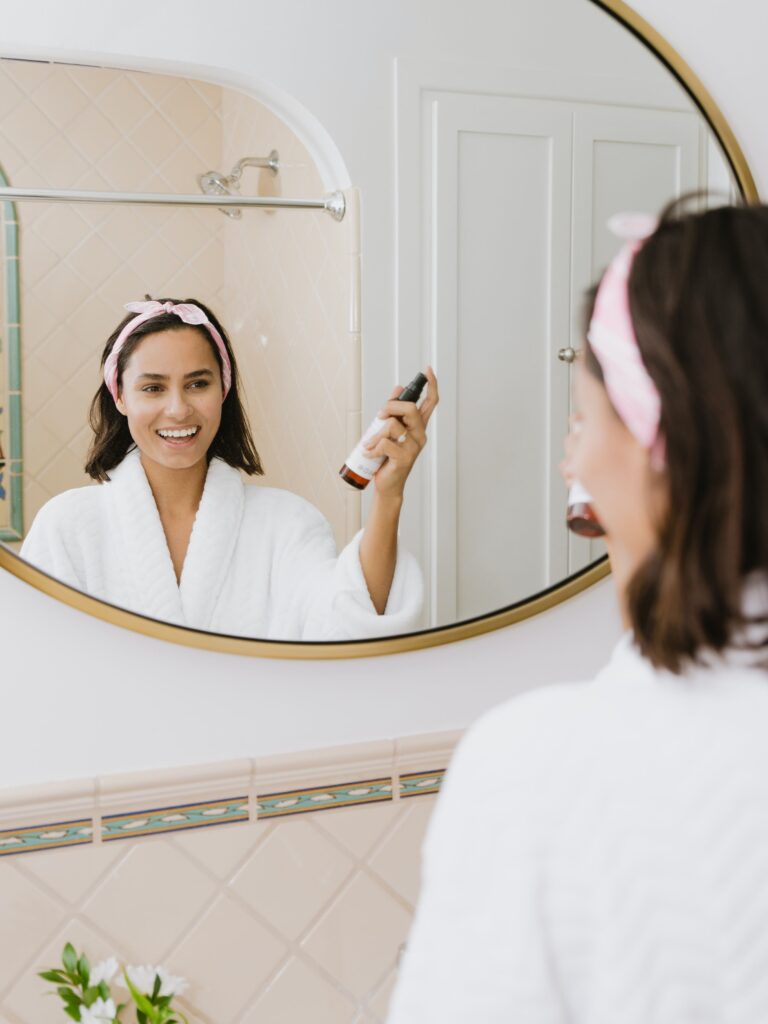
Skincare Routine: Replace Your Cleanser With A Balm, Oil, Or Cream.
While frothy, bubbly cleansers are enjoyable, they are not beneficial to your skin. Cleansers based on foaming or salicylic acid are excellent at eliminating dirt and oil, but they contain sulphates, which can be more drying than other cleaners. Cleansing creams, balms, and oils can cleanse the skin efficiently while keeping it moisturised and not damaging the skin barrier.
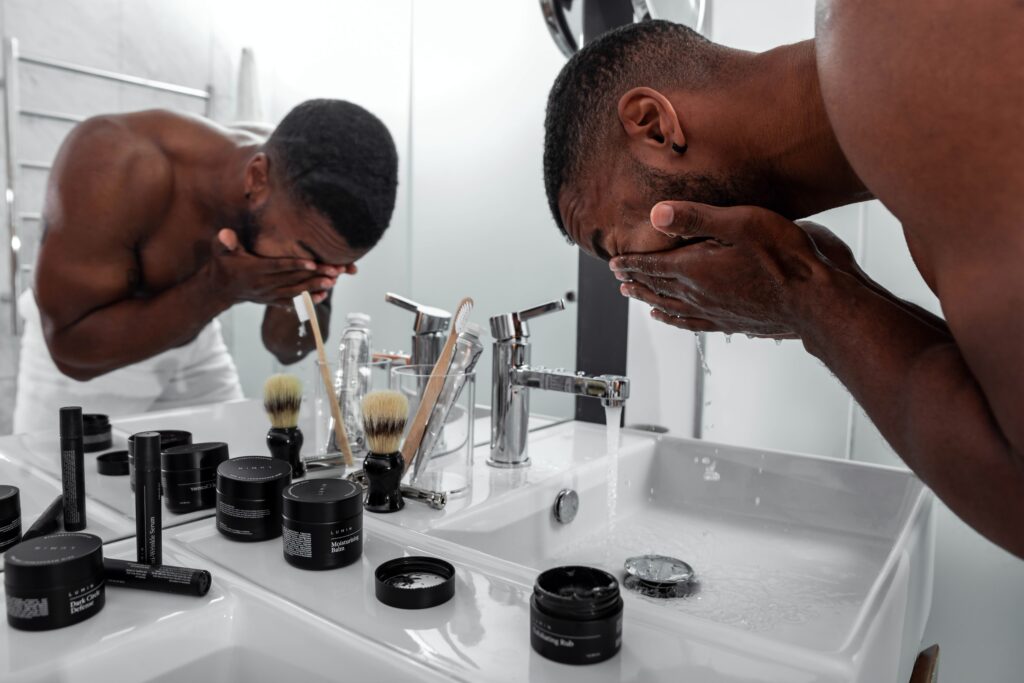
If you have pimples, utilise acne-focused skincare containing salicylic acid and benzoyl peroxide with caution. These abrasive substances, when used in excess, can aggravate dry skin. If you’re a regular user, pair such products with ph-optimised skincare to help control skin barriers that have been out of balance.
Include A Good Exfoliator In Your Skincare Routine
The benefits of proper exfoliation are well known. Gentle exfoliation removes dead skin cells acquired by dry winter air, leaving your skin glowing and allowing your post-cleansing moisturiser to absorb more effectively. However, don’t go overboard! While exfoliating can aid in illuminating the skin by eliminating dead cells, doing so too frequently can damage the outer skin layer, causing dryness and discomfort. Exfoliate once a week, then twice weekly if you can stand it.

Reduce Bathing Time And Temperature Is A Must For Your Skincare Routine
While winter weather may seem like the ideal time for a long, hot bath, avoid the temptation. Dermatologists claim that prolonged contact with hot water can deplete the skin’s natural moisture, making you drier. Take quick lukewarm showers no more than once a day, and use rich moisturisers soon after the shower, while your skin is wet, to lock in hydration. Use enough to leave your skin moisturised, which may require more application than in the summer. If your skin is flakier than average, consider dry brushing, which includes stroking your skin in a soft, circular motion with a brush. The adhesion exfoliates dry winter skin and promotes lymphatic drainage. It’s also a fantastic self-massage.
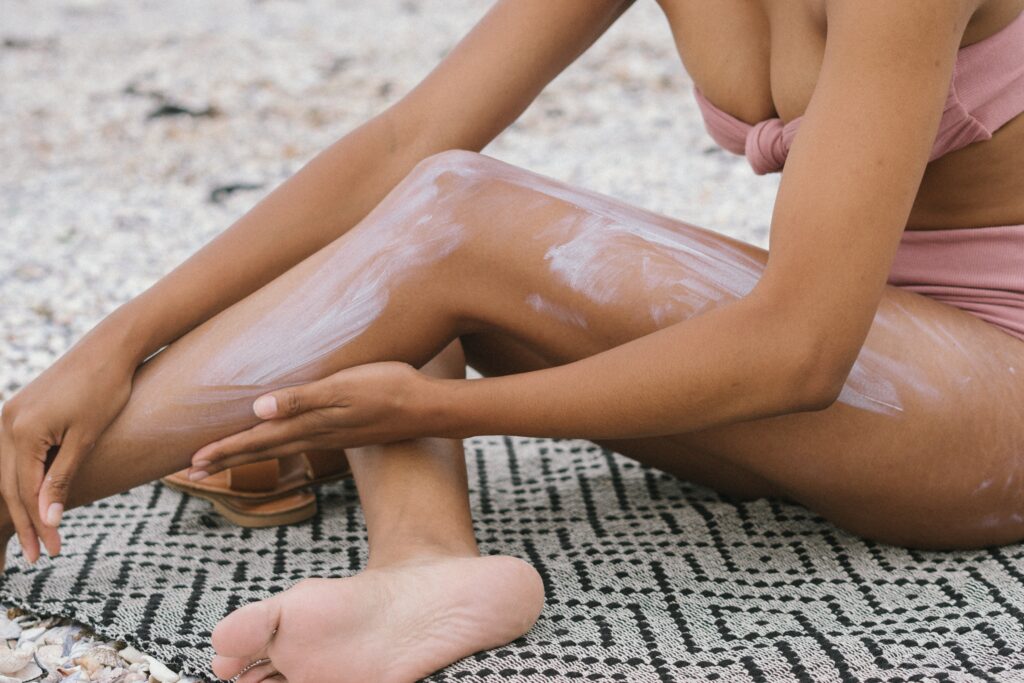
Change From A Lotion-based To A Cream-based Moisturiser.
If you only want to highlight one thing, make it this: keeping skin moisturised is the fundamental rule of winter skincare. A lighter lotion may please your skin during the dog days of summer, but it will not keep you warm in the winter. While humectants may have sufficed to keep the skin moist during humid months, emollients and occlusives will be more needed during dry months.
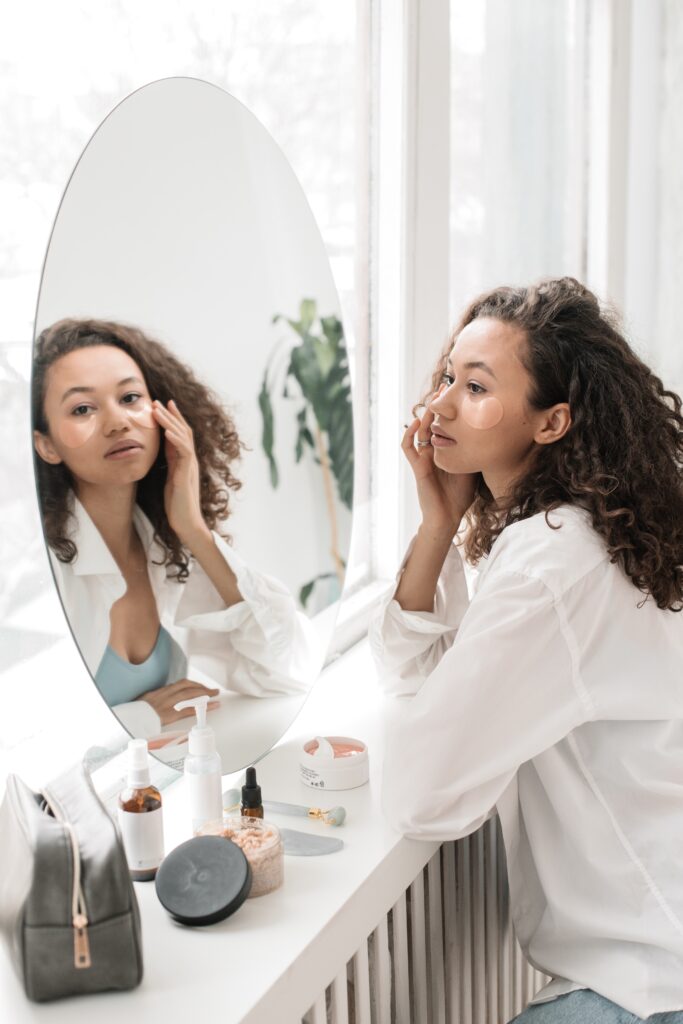
Let’s go through that again:
Humectants (hyaluronic acid and glycerin, for example) are low-molecular-weight chemicals that draw water from the air and into the skin.
Emollients are creams and lotions that aid in the operation of the skin’s barrier.
Oils and waxes that form a coating on the skin and physically prevent water from escaping are known as occlusives.

Skincare Layering Is Vital For Your Skincare Routine
It’s not my intention to continually compare skin care to clothes, but it’s the most significant comparison. Consider skincare application as skin’s outerwear: Your skin, like your clothing, needs layering to warm throughout the cooler months. Layering allows you to treat various skin issues at once with different solutions. A solid rule of thumb for layering skincare is to start most accessible and work your way up (watery toner first, serum second, and moisturiser third). They work together to reduce inflammation, restore moisture, and reinforce the skin barrier.

Remember the SPF, which is essential in the winter. Even incidental sun exposure accumulates over a lifetime. While the sun’s rays are more remarkable in the summer, you are still vulnerable to UV damage in the winter. Since UV radiation bounces off of snow, you may develop a sunburn even in the middle of winter.
Include an Overnight Mask.
We don’t need a reason to put on a face mask, but if you haven’t before, winter is the most fantastic time to start. The world of skincare masks is vast, but don’t sleep — or do — on overnight masks. Overnight covers are designed to be the final step in your evening skincare routine, helping to seal in all of the serums, creams, and oils you used earlier. Skin moisture levels begin to fall in the afternoon and continue overnight; thus, masking in the evening is particularly beneficial for keeping the skin moisturised. If you sleep in a room with dry heat, use your nightly mask with a bedside humidifier to lock in moisture even more. Overnight masking is also a terrific way to add more focused treatments to your skincare routine.
Those suffering from eczema, for example, may benefit from ceramides and aloe, while those seeking anti-ageing advantages may prefer a night mask laced with retinol or bakuchiol.
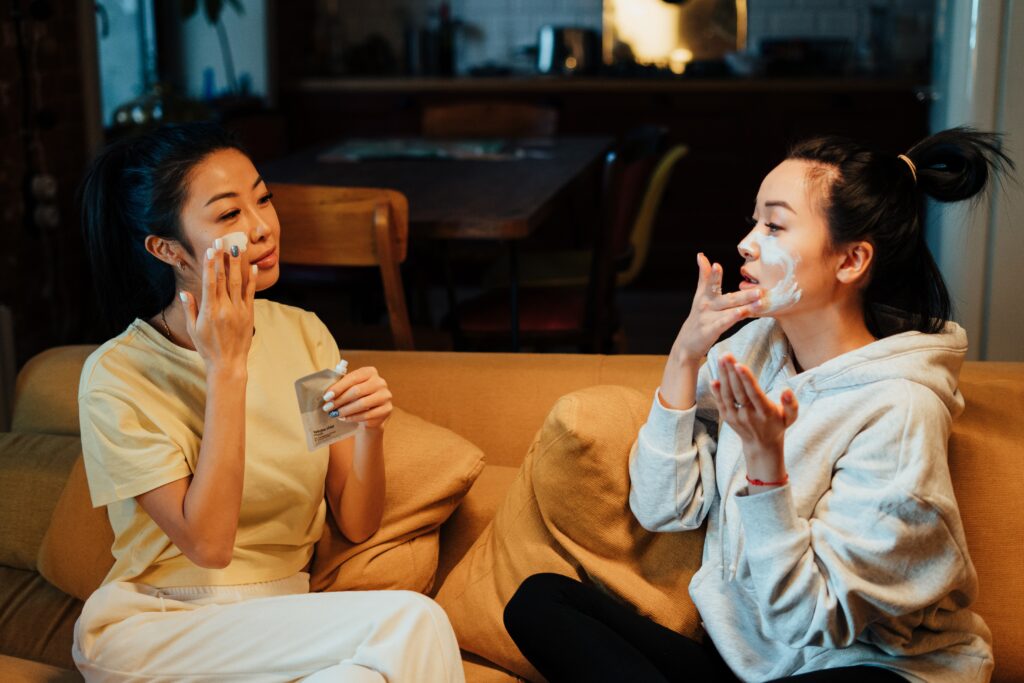
Change Your Facial Skincare Routine.
Your facial skin is especially vulnerable to severe winters and suffers from regular wear and tear from dry air. Choose a winter-friendly skincare routine to help prevent winter skin problems:
- Wash your face with fragrance-free, hydrating cleansers or gels.
- Limit the use of soap to the required regions, such as the hands, armpits, genitals, and feet.
- Toners and astringents should be used sparingly.
- At night, use a thick moisturiser cream.
- To keep your lips from becoming chapped, use a hydrating balm.
- If your skin is dehydrated and irritated, always see a dermatologist.
- Whether the sun is shining or not, always put on sunscreen before leaving the house.
Always use sunscreen with an SPF of 15 or higher. Sunscreens are especially crucial during snowfall since snow may reflect and magnify the sun’s brightness.
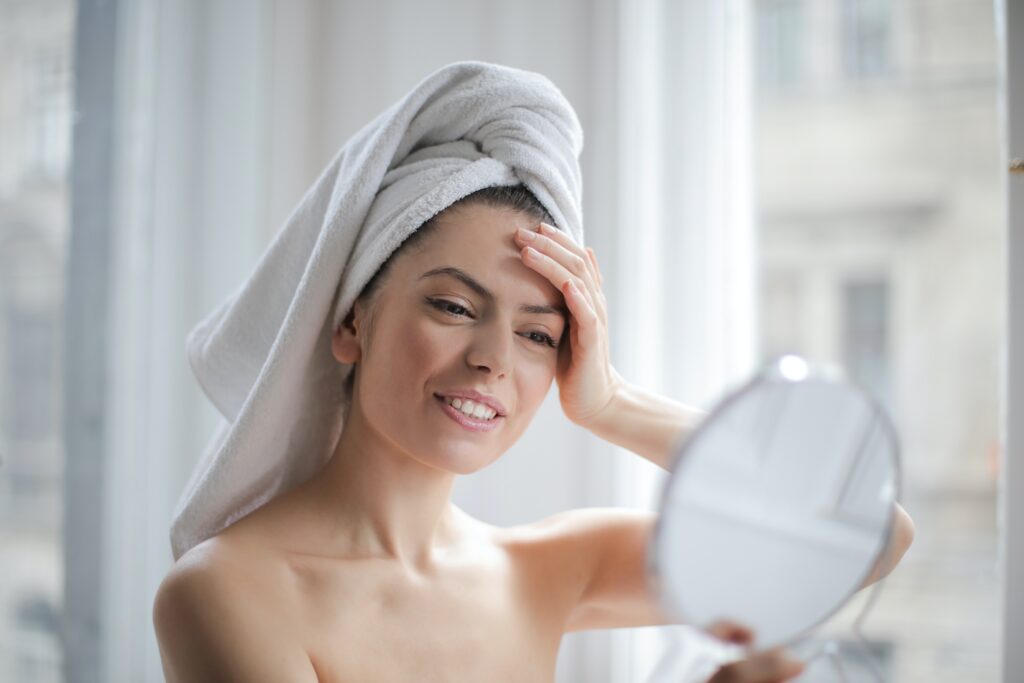
Visit Your Dermatologist Regularly.
Staying in touch with your dermatologist or primary care physician regularly will help you readily identify any future disease or skin condition that may worsen throughout the winter. Your doctor can also help you effectively treat various skin issues, such as damaged, dry, itchy, and flaky skin, so you can enjoy healthy skin from the inside out.
Get Rid Of The Clay.
Grabbing one of those clay masks to pamper your face may be tempting, but clay-based cosmetics can cause the skin to dry out even more. Avoid it in the winter to avoid dry, dull skin. It would help if you went for a light exfoliating mask.

Consume More Water!
Skincare is more than simply what you put on your skin. It also has to do with what you put into your body. Staying hydrated is essential all year, but especially in the winter. As winter approaches and temperatures fall, the air around us becomes drier, and our bodies receive less moisture than during the summer. Increasing your hydration is critical, so get a nice water bottle and start drinking. If you’re still feeling dehydrated, try adding a humidifier to the bedroom or living room you spend the most time in.
Comment below your winter must-haves skincare products. And for more articles like this, keep your eyes on thewebcapitals.


























Leave a Reply